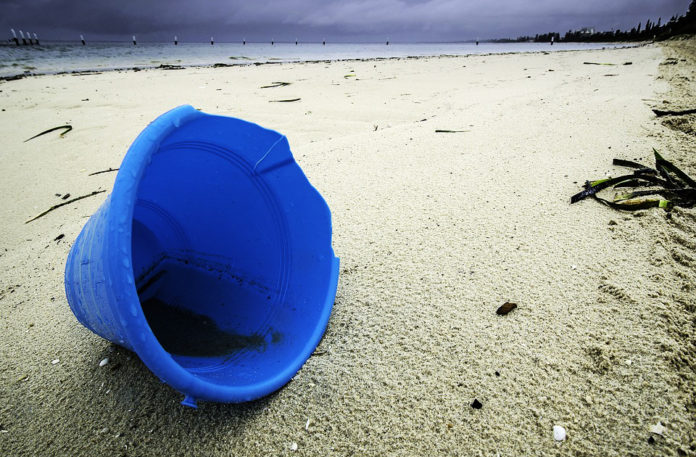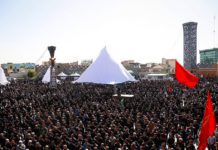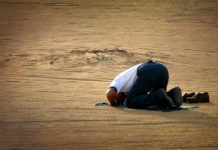During the Month of Ramadhan I am sure we are all accustomed to hearing about the virtues of Ramadhan, the Quran and fasting etc. However, it is rare to hear about the virtues of two important aspects of fasting that we seldom do remember about their spiritual significance; suhoor & iftaar.
For many of us, iftaar & suhoor is not a spiritual experience, rather it is simply a means to only fill our stomachs. In this brief article I would like to mention some of the important Prophetic traditions related to these two aspects of our fast and their significance.
In one Hadith the Prophet ﷺ:
| The one who fasts has two moments of happiness: when he breaks his fast and when he meets his Lord. (Bukhari) |
The scholars commented on this narration saying that this happiness is a natural happiness due to the removal of his hunger and thirst. However, there is another reason why the believers should be happy as well. Namely that they were able to complete this great act of worship and that they are pleased that they are fulfilling the commandment of their Lord in breaking their fast. In fact the Prophet ﷺ said:
| Indeed Allah is happy with his servant when he eats he praises Allah. |
Therefore, when a person eats whilst being grateful, he will become delighted at the prospect that Allah (swt) will be happy with him. The Prophet ﷺ also said:
| The one who eats and is grateful is on the same level as the one who fasts and is patient. (Bukhari &Tirmidhi, Albani: Saheeh). |
Surely this should be a reason for us to be delighted with iftaar & for being delighted that Allah (swt) is our Lord and will be, inshaallah, happy with us. Essentially, this is also the reason why Eid is such a joyous occasion, for it reflects ones happiness in receiving Allahs grace by being able to accomplish this great act of worship.
Another aspect of iftaar that the Prophet ﷺ stressed about was the importance of hastening to break the fast and not to delay it. The Prophet ﷺ said:
| Mankind will continue to remain well as long as they hasten to break their fasts. (Agreed Upon). |
Also the Prophet ﷺ said:
| This religion will remain to be manifest as long as people hasten in breaking their fast. This is because the Jews and the Christians delay in breaking their fasts. (Abu Dawud Hasan). |
For some, the relationship between the manifestation of the religion and ones hastiness in breaking the fast, might seem at first to be a bit obscure. However, the scholars mentioned that this is the case since it shows that if people are eager to be different from the People of The Book, and preserve their unique standards then that will entail that this religion will remain to be uncorrupted and unblemished by the ill practices of other faiths & traditions. Also, it shows that if the Ummah is eager in following the sunnah, stopping at its boundaries regardless of whether it agrees with their intellects or not, it will entail the manifestation of this religion since Allah (swt) will give tawfeeq to such people. Therefore, it is of no surprise that the Prophet ﷺ said:
| My ummah will continue to remain upon my sunnah as long as they do not delay their iftar until the stars appear. (Abu Dawud Hasan). |
To summarise: Breaking the fast is a spiritual experience, it causes one to feel happy at the fact that they have completed a great act of worship by the grace of Allah (swt). One should also remember that thanking Allah for the food that he has provided us with leads to the pleasure of Allah (swt). This is especially important to state here because this is a golden opportunity to recognise the blessing of Allah (swt) for the food he has provided us with. We must also remember that hastening to break the fast is an important sunnah since we are differing from the Jews & the Christians.
Suhoor
The pre-dawn meal, suhoor is also another aspect of our fasting that we truly neglect and do not realise its significance. For some it is simply a means to store up food for the coming day and nothing more. However, the Prophet ﷺ would encourage his companions to have suhoor for a number of reasons other than to simply fill our stomachs; the Prophet ﷺ said:
| Have Suhoor for verily there is blessing in it. (Agreed upon). |
Therefore, the suhoor is an opportunity to reap some barakah. However, one may ask: Where does the barakah lie in having suhoor? To answer that, the following are some of the blessings that are attained through suhoor:
1. Following the Prophets sunnah.
2. Differing from the people of the book.
3. Strengthening ourselves for worship.
4. Repelling bad characteristics that are usually associated with hunger such as anger.
5. Opportunity to engage in charity by providing suhoor for others.
6. Opportunity to make dhikr & duaa at a blessed time.
Therefore, there are plenty of sources of good in this great act of suhoor. It is of no surprise therefore that the Prophet ﷺ said:
| Indeed it is a blessing that Allah (swt) has given to all of you, so do not leave it! (Nasaaie Saheeh). |
He ﷺ also said:
| Have Suhoor even if it is a mouthful of water. (Ibn Hibban hasan/saheeh). |
In addition to that, how many of us remind ourselves of the the following hadith when we have suhoor?:
Indeed Allah and his Angels send salah for those who have suhoor. (Tabarani hasan/saheeh).
The salah of Allah (swt) entails that He (swt) mentions that
| person amongst the highest of gatherings whilst the salah of the Angels entails them making istighfaar for those who have suhoor. Subhanallah, if this was the only virtue of suhoor then it would suffice as an encouragement to have suhoor and never leave it. |
Remembering the virtues of any act of worship helps one to truly benefit spiritually from that act of worship, and this applies true to suhoor & iftaar as well. May Allah (swt) grant us the ability to benefit from our fasts, from dawn to dusk and make us feel the sweetness in worshipping him.
Footnote
Adapted from abuqutaybah.blogspot.co.uk
(NOTE: If you want to build a strong and powerful relationship with Allah, check out Islamia TV, where you can watch Islamic speakers from across the globe deliver inspiring and motivational courses. Learn more at www.islamia.tv.)





















